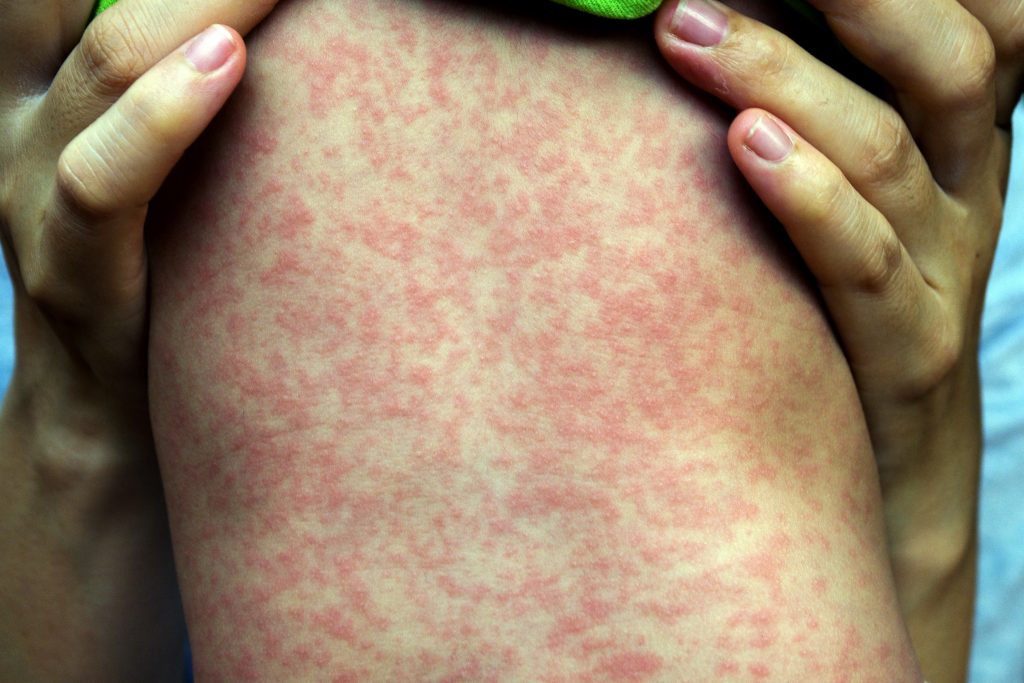Australia is on track for its worst measles rate in five years after a spike in the number of cases confirmed in the first three months of 2019.
What is happening?
Nationally, there have been 92 recorded cases of measles in the first quarter of 2019. This is five cases ahead of the yearly total for 2015 and closing in on the 103 cases from 2018.
The Department of Health said most Australian measles cases are the result of unvaccinated individuals becoming infected while travelling overseas and subsequently spreading the illness to others upon their return.
What does this mean?
Due to the highly contagious nature and increasing frequency of measles, a potential epidemic could ensue.
According to the World Health Organisation at least 95 per cent of people need to be vaccinated for there to be enough immunity across the population to stop spread and help protect those who cannot be vaccinated.
What are the symptoms of measles?
Measles is a highly contagious respiratory infection which causes a full-body rash and flu-like symptoms. It can lead to significant further complications such as: infections, pneumonia, blindness and even swelling of the brain.
It can pass through droplets sprayed into the air via a cough or sneeze. When someone in exposed to another with the virus, symptoms tend to appear within a week to two weeks.
Symptoms include:
- Fever
- Runny nose
- Dry cough
- Sore and red eyes
- Red/blue spots inside the mouth (Koplik’s spots)
- Red and blotchy skin rash that appears first on the face and hairline, and then spreads to the body.
As it is caused by a virus, there is no specific cure or medical treatment for the measles.
___________________________________
House Call Doctor sends a home doctor to you and your family when your regular GP is closed at night and on weekends and public holidays. To book a house call home doctor patients should call 13 55 66 or book online or via the House Call Doctor App.





